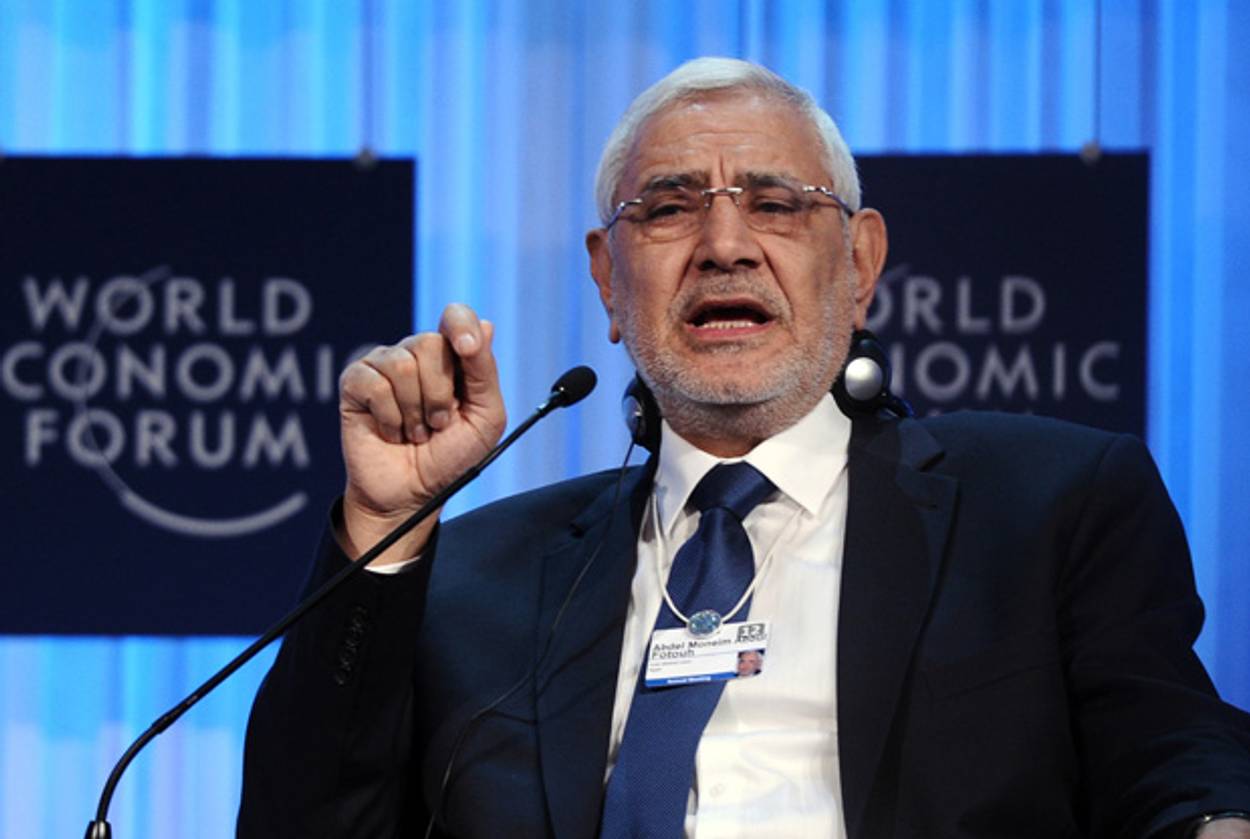Ultra-Right Backs Moderate Islamist in Egypt
Salafists, Christians could defeat Muslim Brotherhood for presidency




The good news and bad news come with the same news: that over the weekend, Egypt’s Salafists, the most conservative Islamists, endorsed for president Abdel Moneim Aboul Fotouh, a comparatively moderate Islamist. The good news is that this makes it less likely that the Muslim Brotherhood candidate, Mohammed Morsi, who is replacing the disqualified Khairat el-Shater, will win the race: a good thing given that the Brotherhood already has the plurality in Parliament and the sway to demand a new Cabinet and could therefore have been in danger of gaining too much power (which is why the Salafists pulled this move); and also because Aboul Fotouh is less hard-line than the Brotherhood—was indeed kicked out of the Brotherhood—and, of course, far less hard-line than the Salafists.
The bad news is that if Aboul Fotouh becomes president, then the Salafists will have been the kingmakers. Moreover, the evidence is that the Salafists understand they’re playing a long game—explaining the unexpected endorsement, a spokesperson acknowledged that the group and Aboul Fotouh differ on whether the state is permitted to compel religious practices. Moreover, compared to Morsi, who had been in charge of the Brotherhood’s dealings with the military, and the third main candidate, Amr Moussa, a former foreign minister to Hosni Mubarak, Aboul Fotouh likely has the weakest ties to the current military rulers, who are also the people keeping the peace with Israel.
Then again, it was Moussa who yesterday declared the Camp David Accords “dead” (while clarifying that he supported the cold peace); and anyway the Salafists seem interested primarily in tending to domestic affairs, for now. Plus, Aboul Fotouh is also the favored candidate of moderates and even Christians.
The question is whether a sort of military deep state sticks around and has the power to do things like deal with Israel. There’s word that secret talks are under way to resolve the dispute that led to Egypt’s shutting off the flow of natural gas to Israel—an energy relationship that is also a crucial buttress for the peace. From Israel’s perspective, hopefully things like that can go on no matter who wins.
Today it’s May, which means that today the first round of the presidential elections is later this month.
Support From Islamists for Liberal Upends Race in Egypt [NYT]
Meet the Islamist Political Fixer Who Could Be Egypt’s Next President [TNR]
Egypt Military Bends to Islamist Will [WSJ]
In Egypt, Salafist Vote Could Prove Decisive [WP]
Amr Moussa: Camp David Accords ‘Dead,’ but Egypt Still Honors Peace with Israel [Times of Israel]
Israeli, Egyptian Officials in Secret Talks on Gas Deal Crisis [Haaretz]
Earlier: Egypt Shuts off Gas Spigot, Threatening Peace
Marc Tracy is a staff writer at The New Republic, and was previously a staff writer at Tablet. He tweets @marcatracy.